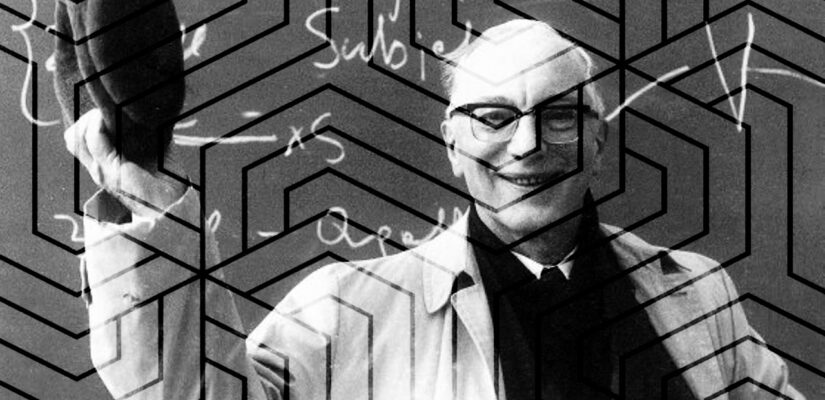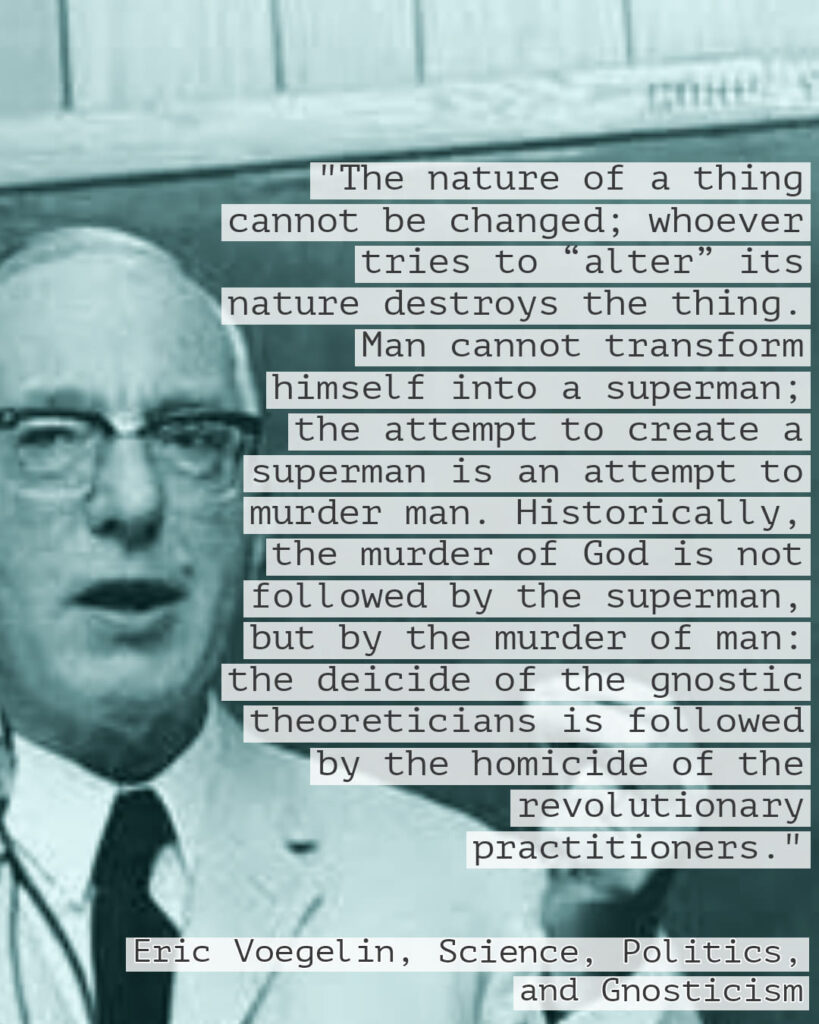
A disturbance in the life of the spirit, or pneumopathology | (dot)philosophy

(dot)philosophy | A space by GIACOMO MARIA ARRIGO
The philosopher Eric Voegelin (1901-1985) elaborated the notion of “pneumopathology”, which means “disease of the spirit”.
In 1952, Voegelin describes it as «a spiritual sickness […], a disturbance in the life of the spirit».[1]
What does it mean? The reality is mysterious, unsteady and uncertain, full of sufferings and without clear certitudes, says Voegelin; only a pneumopathic mind could replace the intrinsic insecurity of existence with a made-up dream reality.
Hence, pneumopathology consists of the derailment from the regular perception of reality and of the creation of a second reality, also called “dream reality”. Pneumopaths «speak [about dream reality] as if they have had experience of it; and they have to act as if they were capable of bringing it about.»[2]
In the mind of pneumpaths, the dream reality is the perfect society, the final stage of history that gives meaning to the flow of events and that should be reached within history. However, it is impossible to realize it anywhere and at any time: the friction with true reality is insurmountable and constant. Hence, the violence of the pneumopath over reality, besides being extreme and tremendous, would be endless.
«There are then, if this pneumopathic condition has occurred, two realities: the first reality, where the normally ordered man lives, and the second reality, in which the pneumatically disturbed man now lives and which thus comes into constant conflict with the first reality.»[3]
In an essay written in 1970, Voegelin argues that such pneumopathic condition is a «disturbance within reality»[4] which tends to eclipse reality, even though it cannot ever abolish it, eventually resulting in a permanent state of revolt, a permanent revolution aimed at eroding reality in a never-ending effort.

[1] Eric Voegelin, “Gnostic Politics”, in The Collected Works of Eric Voegelin, vol. 10, Published Essays 1940-1952, ed. Ellis Sandoz (Columbia and London: University of Missouri Press, 2000), p. 226.
[2] Ibid, p. 227.
[3] Eric Voegelin, “Hitler and the Germans”, in The Collected Works of Eric Voegelin, vol. 31, eds. Detlev Clemens and Brendan Purcell (Columbia and London: University of Missouri Press, 1999), p. 108.
[4] Eric Voegelin, “The Eclipse of Reality”, in Phenomenology and Social Reality, ed. Maurice Natanson (The Hague: Martinus Nijhoff, 1970), p. 186.